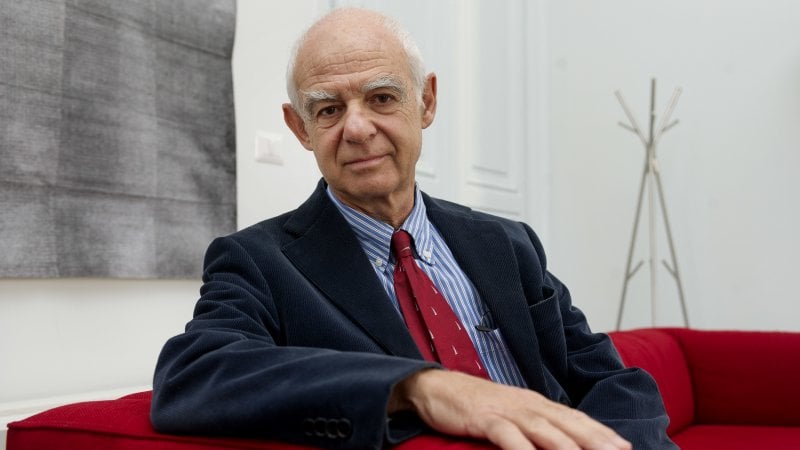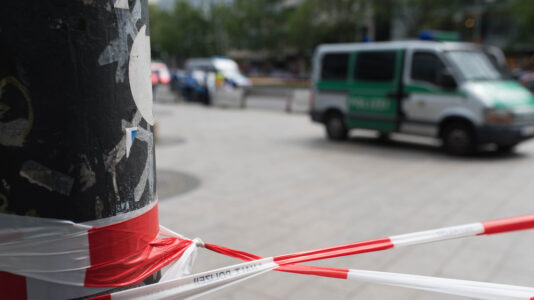Sociologist and political scientist Luca Ricolfi has issued a stark warning about the growing risks of violence and marginalization in Italy’s suburbs, citing an urgent need to address illegal immigration and integration challenges.
His remarks follow recent migrant riots in Milan’s Corvetto district, which reignited concerns about social degradation in Italy’s major cities.
In an interview with Il Giornale, Ricolfi dismissed suggestions that the Milan riots mark a turning point, pointing instead to a trend of increasing youth violence in the post-Covid period. “Youth crime has exploded, especially among foreign minors. We’ve known this for over a year, but no one seems to have looked at the data with due attention,” he said, referencing national data from the Criminal Police that highlights a surge beginning in 2021 and escalating in 2022.
While comparisons have been drawn to the civil unrest frequently experienced in France, Ricolfi stressed that Italy is not yet at that level of demise. “Fortunately we are still far from what is happening in France: Italy has fewer immigrants, a smaller share of Muslims, and a higher level of integration,” he said, but he warned that the “direction of travel” will result in the same destination, albeit slower.
The Italian scholar called for an urgent need to address illegal immigration, describing it as essential to mitigate rising levels of violent crime and feelings of marginalization among growing migrant communities. “We must lower the share of irregular immigrants,” he said, suggesting a mix of remigration and regularization but warning that with conservative estimates of around half a million illegal immigrants currently living in Italy, integration efforts would be futile.
Repatriation of illegal immigrants has been a taboo topic across Europe in recent years but has been gaining considerable traction from mainstream parties desperate not to give up more ground to populist politicians willing to address the crisis.
To tackle the challenges effectively, Ricolfi urged politicians across the political spectrum, as well as the liberal commentariat in Europe, to acknowledge the realities of suburban tensions and immigration-linked crime without ideological bias. “The first step is not to deny the facts or climb over straws to cast doubt on them, as self-proclaimed fact experts continue to do,” he said.
The Italian sociologist highlighted a long-standing lack of current data distinguishing crimes committed by regular and irregular immigrants but pointed to past findings showing that irregular immigrants were statistically 10 times more likely to commit crimes than regular immigrants. “The crime rates of regular immigrants were, in turn, about double those of Italians,” he explained.
Interior ministry figures cited by an Italian journalist show that 11,141 Italian women were raped by foreign nationals in Italy between 2018 and 2023, equating to nearly five cases a day. https://t.co/YxtMbV8OIE
— Remix News & Views (@RMXnews) October 29, 2024As well as facing the reality of the problem, Ricolfi commented on the legal obstacles often found with repatriation, noting that magistrates often block government actions related to immigration. This was seen most recently in rulings passed by a Rome court to strike down an executive order from the Italian government regarding the agreement with Albania for the offshore processing of illegal migrants.
A referral to the European Court of Justice on the Italian government's ability to declare countries "safe" for the return of illegal migrants could see the Italy-Albania offshore processing deal delayed until next summer. https://t.co/iZghCnyX9S
— Remix News & Views (@RMXnews) November 12, 2024The move sparked considerable criticism of the Italian judiciary by government ministers including Deputy Prime Minister Matteo Salvini, who labeled the decision “a political sentence against Italians and their security.”
Addressing criticism of Italy’s judiciary, Ricolfi refrained from outright condemnation but raised an important question: “What would happen if magistrates judging detentions were drawn by lot? If a significant number validated the detentions, it would suggest some are overstepping their role. But if none did, it means they’re simply following their duty.”
Speaking on the World Day for the Elimination of Violence Against Women earlier this week, Italian Prime Minister Giorgia Meloni brushed off anticipated cries of racism to highlight the stark reality that a disproportionate number of foreign nationals are responsible for violent crimes against women across the country.
“Now I will be called a racist, but there is a greater incidence, unfortunately, in cases of sexual violence, by immigrant people, especially illegally, because when you have nothing, a degeneration occurs which can lead everywhere,” she said.






